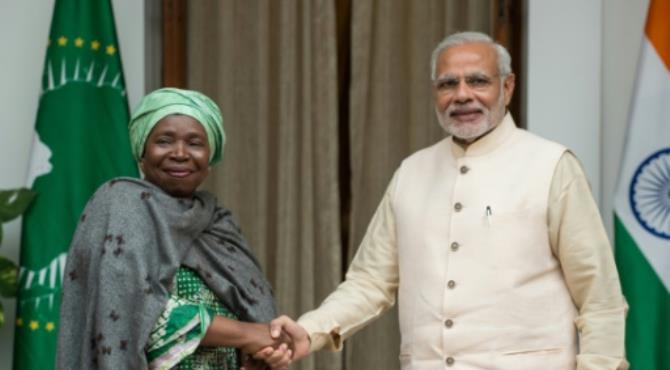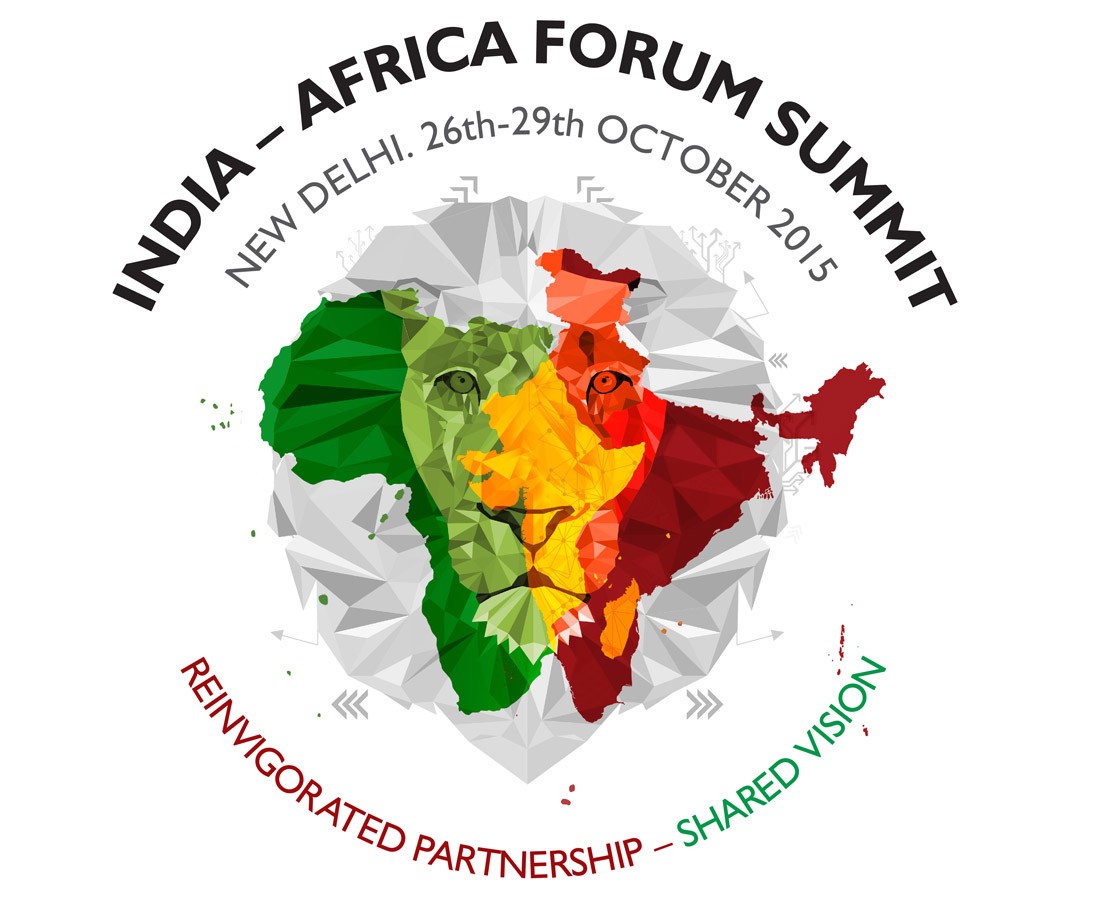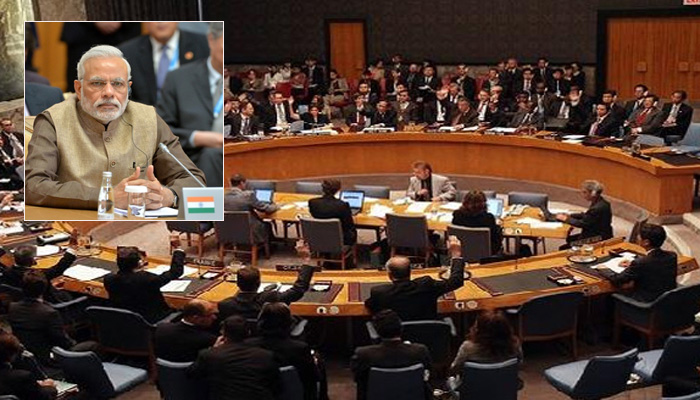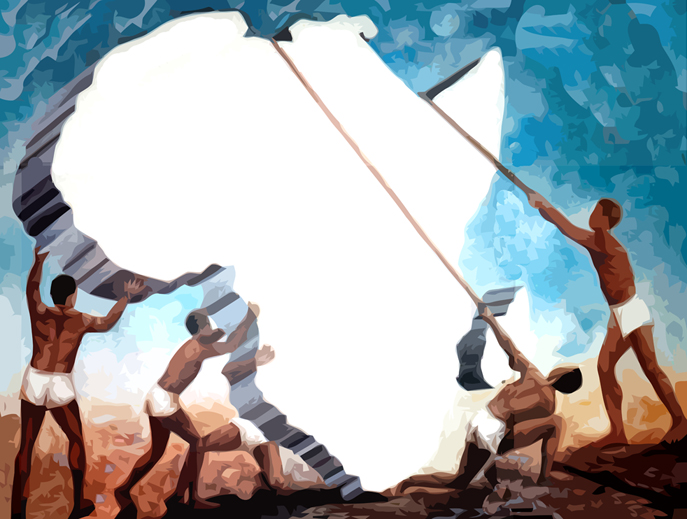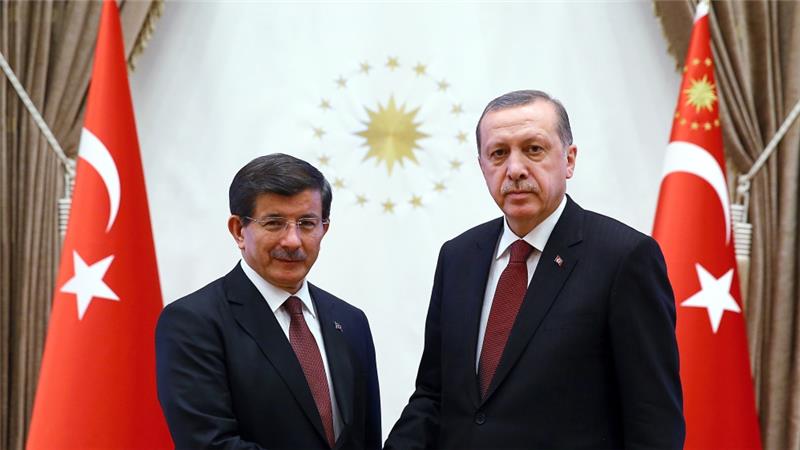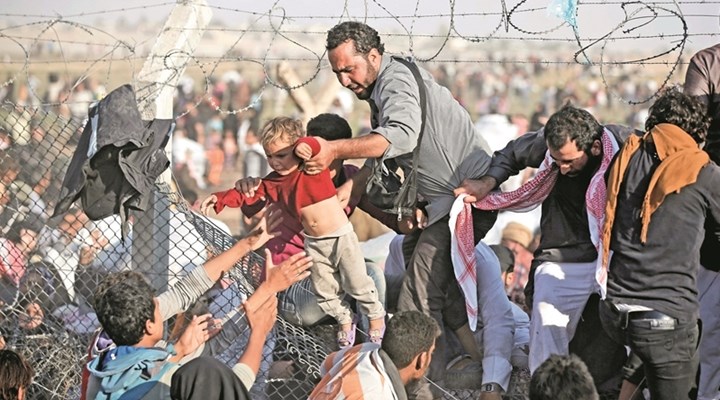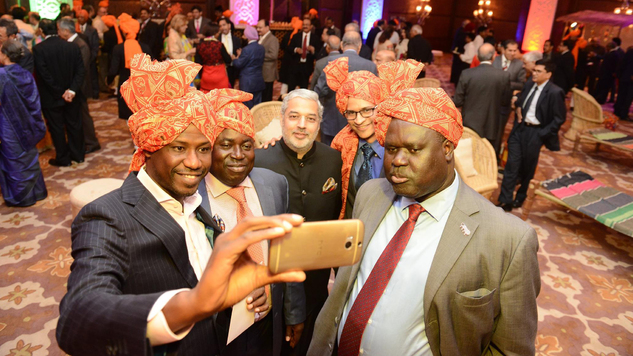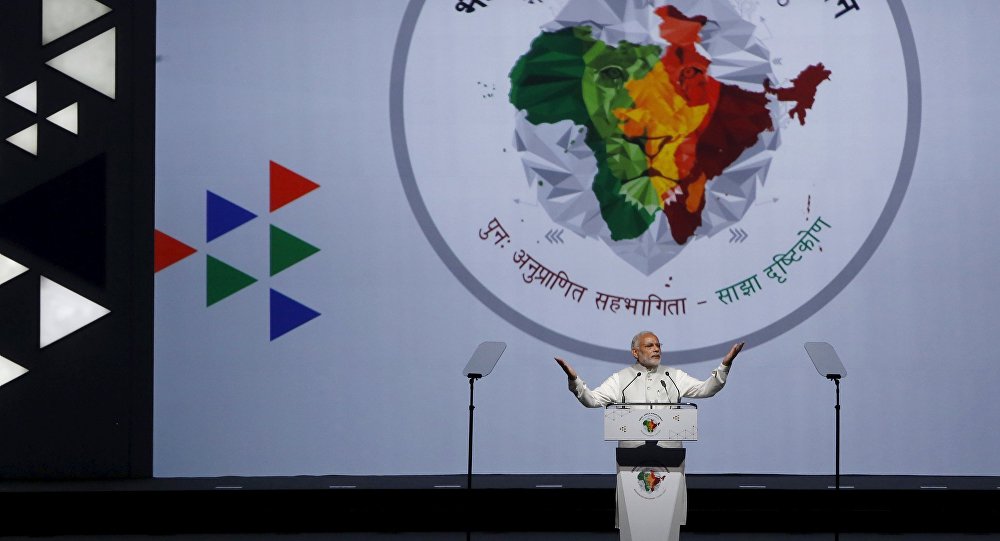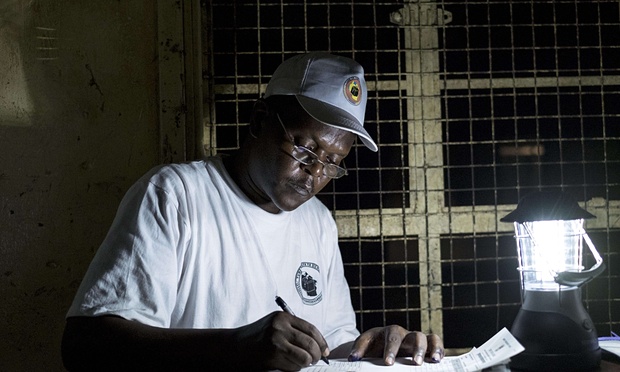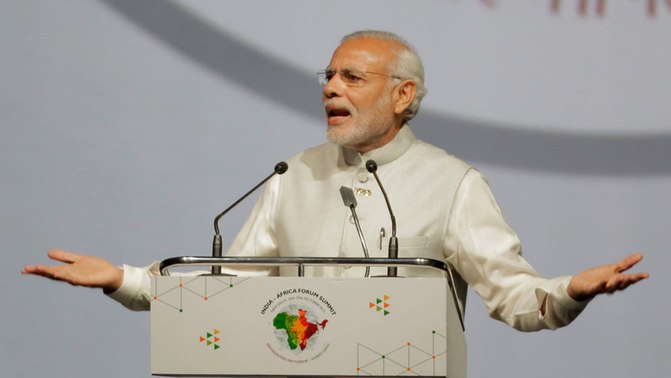INTRODUCTION
1. The Heads of State and Government and Heads of Delegation representing the continent of Africa, the African Union (AU) and its Institutions, and the Prime Minister of the Republic of India, met in New Delhi, India on 29 October 2015 for the Third India-Africa Forum Summit;
2. Reviewing the strategic partnership and the implementation of the Framework of Enhanced Cooperation adopted at the Second Africa-India Forum Summit held in Addis Ababa in May 2011 and the associated Plan of Action agreed upon thereafter;
3. Noting the synergies of their shared core priorities of working together towards an inclusive economic growth to eradicate poverty and allocate adequate resources Read More
1. We, the Heads of State and Government and Heads of Delegation representing the continent of Africa, the African Union (AU) and its Institutions, and the Prime Minister of the Republic of India, met in New Delhi, India on 29 October 2015 for the Third India-Africa Forum Summit, under the theme: ‘Partners in Progress: Towards a Dynamic and Transformative Development Agenda’;
2. We recall the Declarations adopted during our First Summit in New Delhi (8-9 April 2008) and our Second Summit held in Addis Ababa (24-25 May 2011) and the Framework of Enhanced Cooperation and the associated plan agreed upon thereafter as providing a concrete foundation for the consolidation Read More
“India punches below its weight, failing to achieve what it could and should be doing”, writes John Elliot in his book Implosion: India’s Tryst with Reality, wondering why a nation with a population of over a billion people, abundant natural resources and an ancient culture is hobbled “with declining economic performance, poor governance and endemic corruption”. Running well through the nuclear tests in 1998, India’s long-standing aspiration to the status of great power through a totemic United Nations Security Council (UNSC) permanent membership came recently to the fore once again.
Trouble is, the UN, as a multilateral institution, post Cold War, lapsed into insignificance in the face of a Read More
Every year, the International Monetary Fund and World Bank meetings host a discussion on issues related to poverty reduction, international economic development, and finance. Given these two institutions’ presence and influence in sub-Saharan Africa, these meetings often deliver a range of policy prescriptions to improve these countries’ economic climates. So, what are the key takeaways for African countries from IMF and World Bank meetings that were held earlier this month in Lima, Peru?
While in recent years, these meetings have focused on the “Africa Rising” narrative, this year they centered on the continent’s recent falling GDP growth rate. For instance, the IMF forecasts that GDP growth in sub-Saharan Read More
Turkey is headed to its second parliamentary election in five months with snap polls slated for November 1. The election will take place in a highly charged atmosphere with escalating violence and financial volatility.
The renewed conflict between Turkey and the terrorist Kurdistan Workers’ Party (PKK) is spreading throughout the country with the rise of ethnic tensions posing a big threat to internal harmony.
Even a peace rally in the capital Ankara was hit by suicide bombers marking the deadliest terror attack in Turkey’s history.
Turkey, which has always been the most stable country in a turbulent region, risks its security being seriously jeopardised unless the violence is urgently stopped and the Read More
Turkey, which took over the rotating G20 presidency from Australia on Dec. 1, 2014, will host the G20 summit in the Mediterranean city of Antalya on Nov. 15-16. According to diplomatic sources obtained by Today’s Zaman, it is being planned that President Recep Tayyip Erdoğan and acting Prime Minister Ahmet Davutoğlu will sit together with the world leaders at a luncheon on the first day of the gathering. The main topic at the luncheon will be the Syrian refugee crisis that has occurred as a result of the civil war in Syria and the rise of the Islamic State in Iraq and the Levant ( Read More
JUST months ago, India’s Africa summit could very well have been a curtain raiser for Beijing’s similar but more high profile Forum on China-Africa Cooperation, which takes place in South Africa in December.
But recent developments in the Chinese economy have dented its aura of economic miracle maker in Africa, opening the door just a bit wider for other players.
In May 2011, when Indian prime minister Manmohan Singh strode into the old African Union meeting hall in Addis Ababa, he had only 10 African leaders attending the second of the triennial event—the first time it had been held on African soil, although in fairness the meeting followed the AU’s “on-behalf of others” Banjul format.
The two sides Read More
Indian Prime Minister Narendra Modi doubled his nation’s development assistance to Africa, announcing $10.6 billion in cheap loans and grants to support healthcare, scholarships and clean energy on the continent.
“India and Africa must rise together,” Modi told dozens of African heads of state attending a summit in New Delhi on Thursday. He called for the two regions to join hands in combating climate change and terrorism, boosting maritime security, and reforming international institutions including the United Nations Security Council.
The pledges come as India seeks to strengthen its foothold in Africa, a region where trade and investments have trailed Read More
1. Start at a household level
Millions of homes across Africa spend $0.50 per day on kerosene for lighting. If that can be channeled towards purchase of a solar home system that works for year, that is sustainable to our customer. We must provide a solution for individual families before scaling up to country level. Pauline Vaughn, director of operations for M-Kopa, Solar Kenya Limited, Nairobi, Kenya @mkopasolar
2. Remove extra costs
For grid access, tariffs and connection charges are the main barriers to customers. Senegal has encouraged private investment by licensing concessions and paying by results (number of new connections). Monthly bills include a charge that allows their up-front Read More
Paying rich and lyrical tribute to the continent of Africa and its one billion plus inhabitants, PM Modi identified equitable development, that went beyond economic benefits and strategic concerns, as the key to the new relationship in his address at the India-Africa Summit.
Acknowledging Africa as the cradle of human history at the Delhi Summit that brought 54 African nations together, Modi asserted,
Dawn of a New Partnership?
Resource-rich Africa is the emerging strategic flavour of the 21st century. Its many tangible indicators, such as a population of over 1.2 billion and related youth profile and the complementary socio-economic viability of the developing world provide a natural partnership framework for India-Africa cooperation.
Two-way Read More
